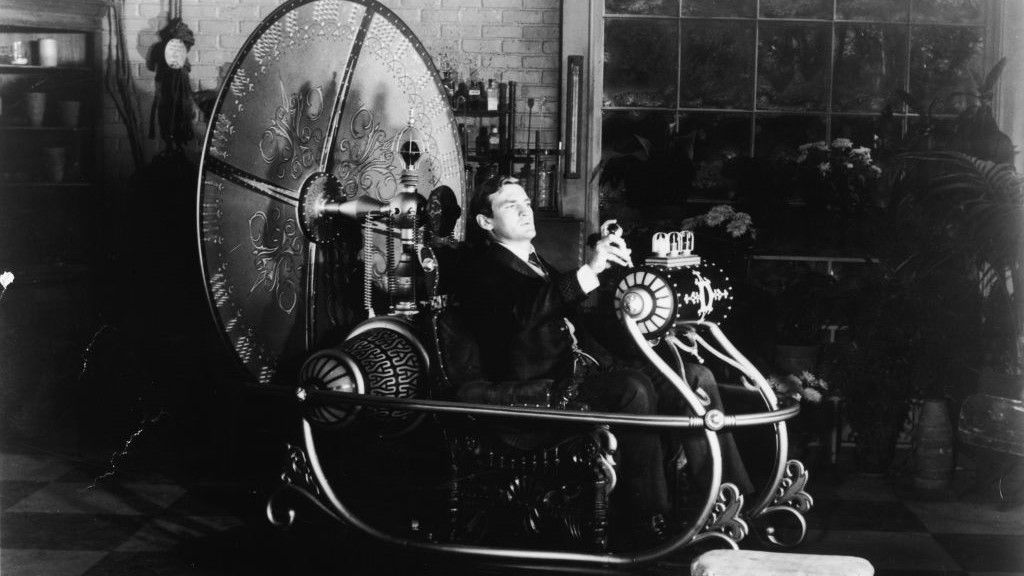From HG Wells’ “The Time Machine” to the “Back to the Future” franchise, time travel has been a hallmark of science fiction for more than a century.
Part of its appeal has been that famous physicists like Albert Einstein have come up with theories that explain weather phenomena in ways that don’t rule out the possibility of time travel.
Einstein’s special theory of relativity proposes that time moves relative to an observer and is an illusion.
In his 1905 theory, space and time combined into a singular entity known as “space-time”, which physicists have been able to verify.
However, in an article published in The Conversation , Barak Shoshany, an assistant professor of physics at Brock University in Canada, wrote about the possibility of time travel, but with certain conditions.

One of the biggest obstacles to time travel is the practical requirement of “exotic matter,” which is matter with negative energy, as opposed to the matter around us, which consists of positive energy.

However, Professor Shoshany adds that there is no evidence that it is impossible to create exotic matter in sufficient quantities.
“In addition, other equations can be discovered that allow time travel without requiring exotic matter,” explains Professor Shoshany.
Another hurdle is the possibility of time paradoxes, where an action done in the past could have ripple effects in the present that undo the need for time travel.
A classic example of this is the famous “ grandfather paradox ”, where pundits ponder whether a time traveler would cease to exist if he went back in time to kill his grandfather when he was young.
“In physics, a paradox is not an event that can actually happen, it is a purely theoretical concept that points to an inconsistency in the theory itself,” adds the Canadian physicist.
“In other words, the paradoxes of consistency not only imply that time travel is a dangerous endeavor, but that it simply cannot be possible.”
Theoretical physicist Igor Dmitriyevich Novikov attempted to solve the problem of time travel paradoxes with a self-consistency conjecture, which essentially states that you can travel to the past, but you cannot change it.
But Professor Shoshany, along with his students Jacob Hauser and Jared Wogan studied time travel, and in a recent study they discovered that there are time travel paradoxes that the Novikov conjecture cannot resolve.
“We show that allowing for multiple histories (or in more familiar terms, parallel timelines) can resolve paradoxes that the Novikov conjecture cannot,” Shoshany writes.
“In fact, it can solve any paradox you throw at it.”
According to his theory, when a person steps out of a time machine, they arrive in a different timeline, where they can do whatever they want, including destroying their time machine five minutes before they were supposed to use it.
In this theory, changes to this new timeline would have no effect on the original timeline.
“After working on time travel paradoxes for the past three years, I have become increasingly convinced that time travel might be possible, but only if our universe can allow multiple histories to coexist,” he continues. explaining the physical
The team of researchers now seeks to formulate a concrete theory of time travel that complies with the law of general relativity.
Professor Shoshany adds that even if they do manage to find such a theory, this would not be enough to prove that time travel is possible, but it would at least mean that time travel is not ruled out by consistency paradoxes.
In short: multiple timelines would allow you to travel to a different timeline and kill your grandparents, let’s ignore the ‘why’ for the sake of debate, without causing a paradox.
Of course, once this happens, there is no reason to believe that that Universe will continue exactly as ours has.
It is likely that the “butterfly effect” of your arrival has changed it, it is also likely that you have selected a limited number of similarities, no matter how great they are.
Still, this would be a (still extremely far-fetched) way to experience the past, without affecting the present or creating paradoxes.


